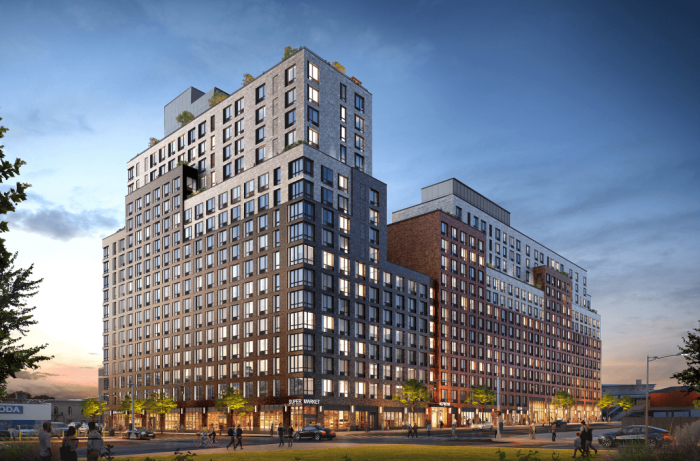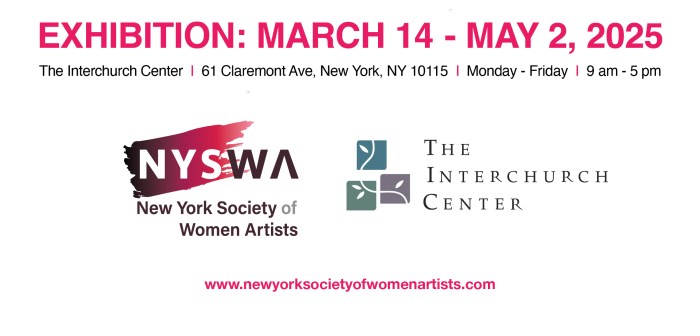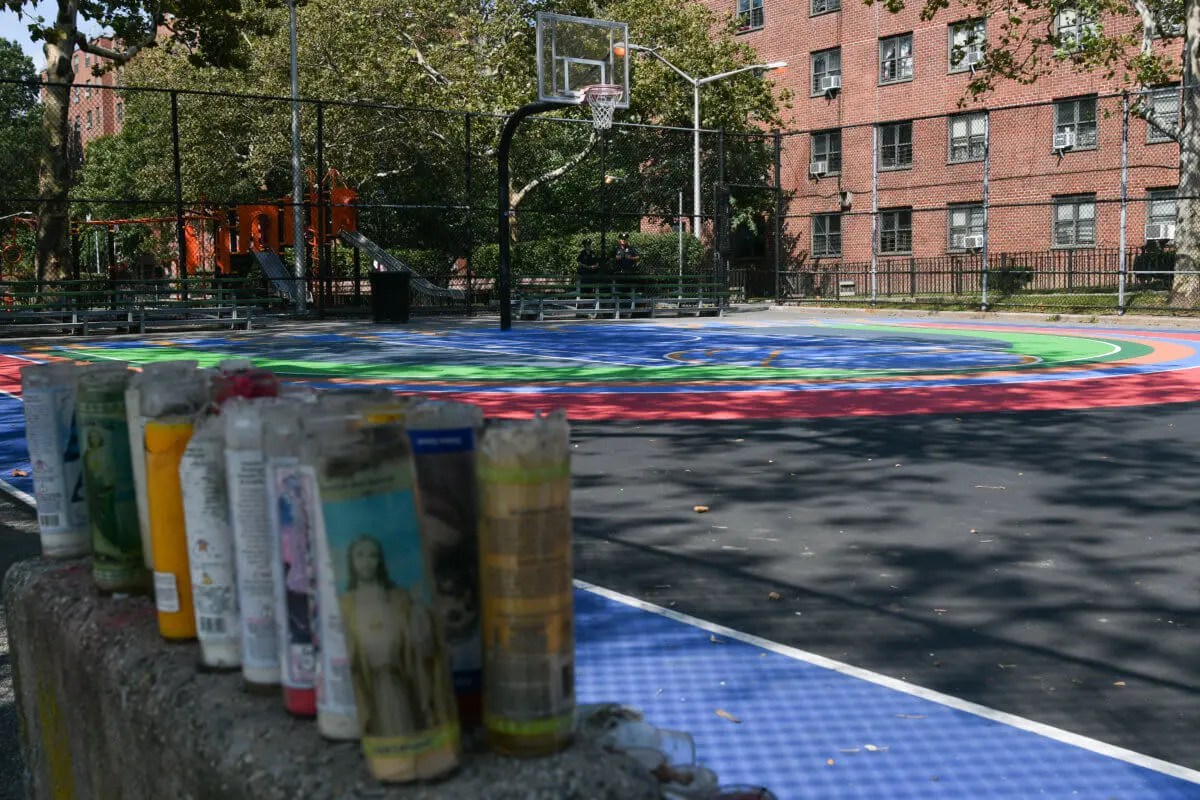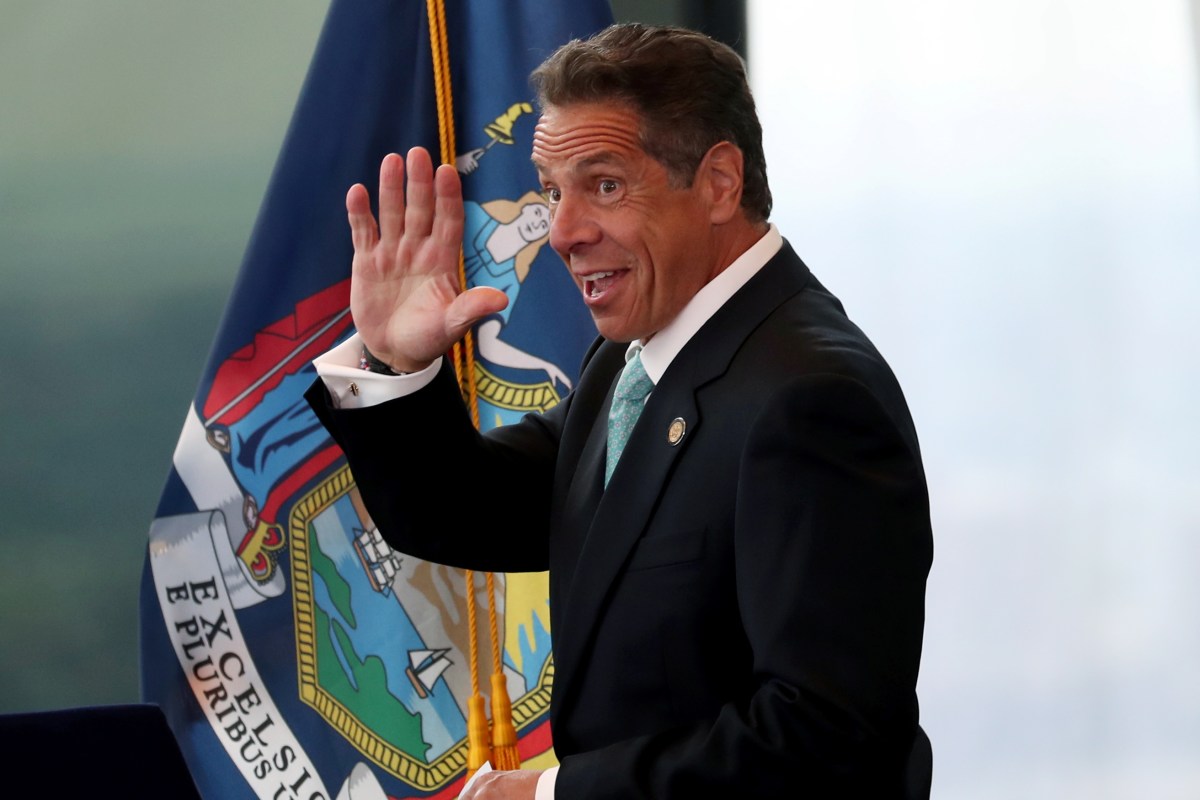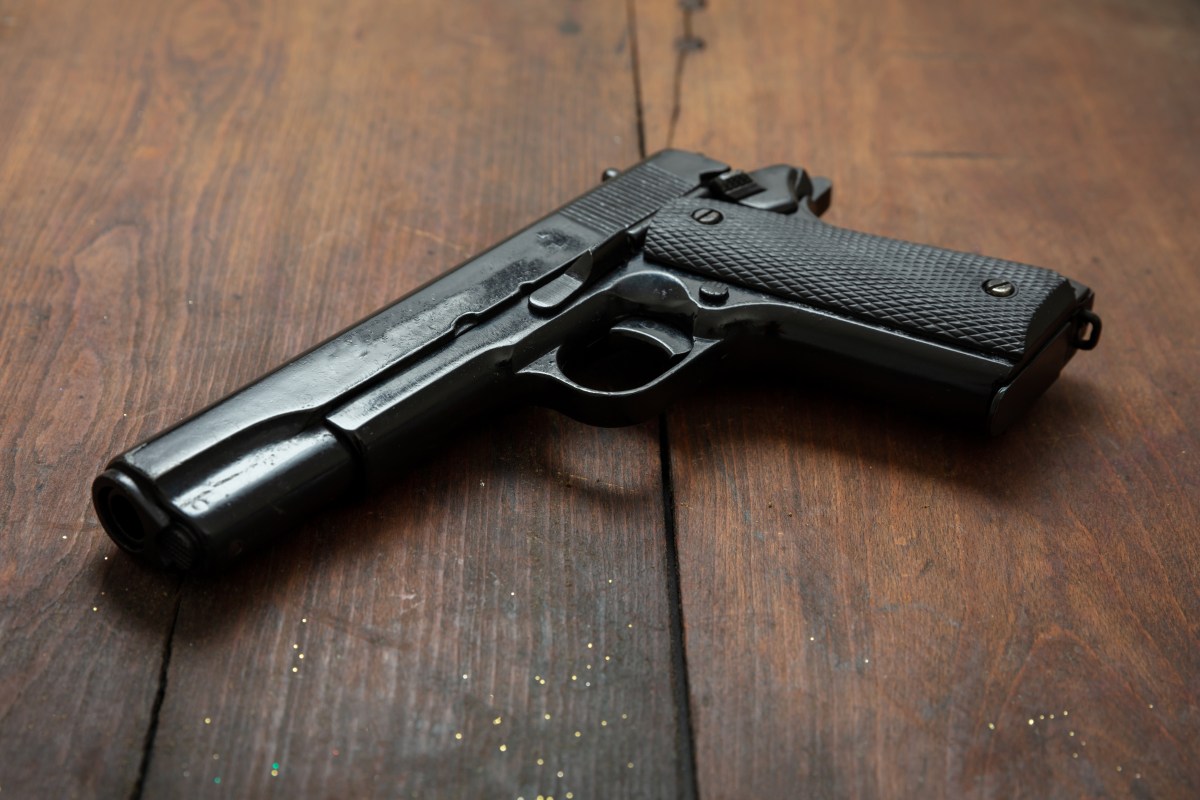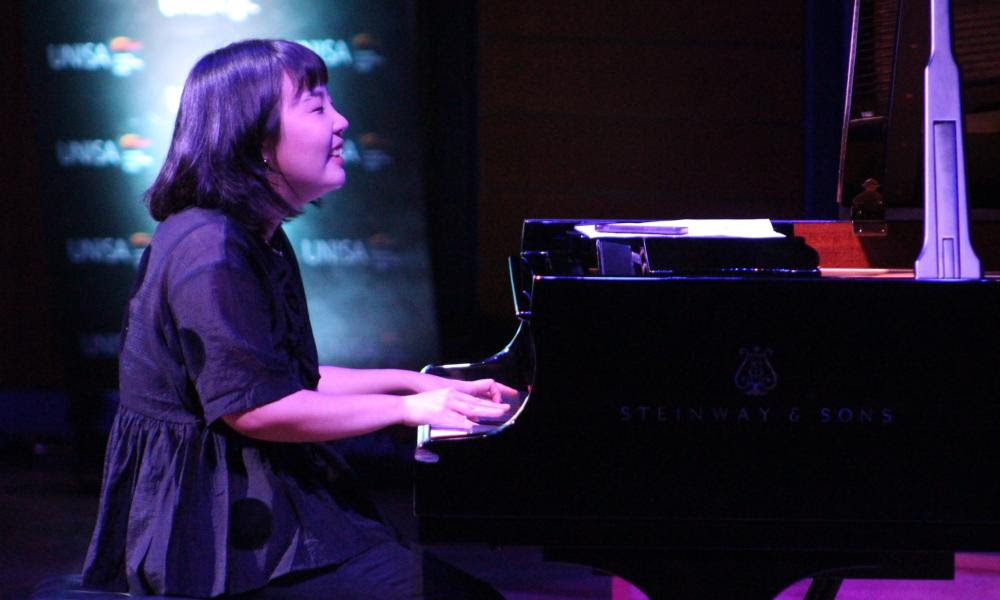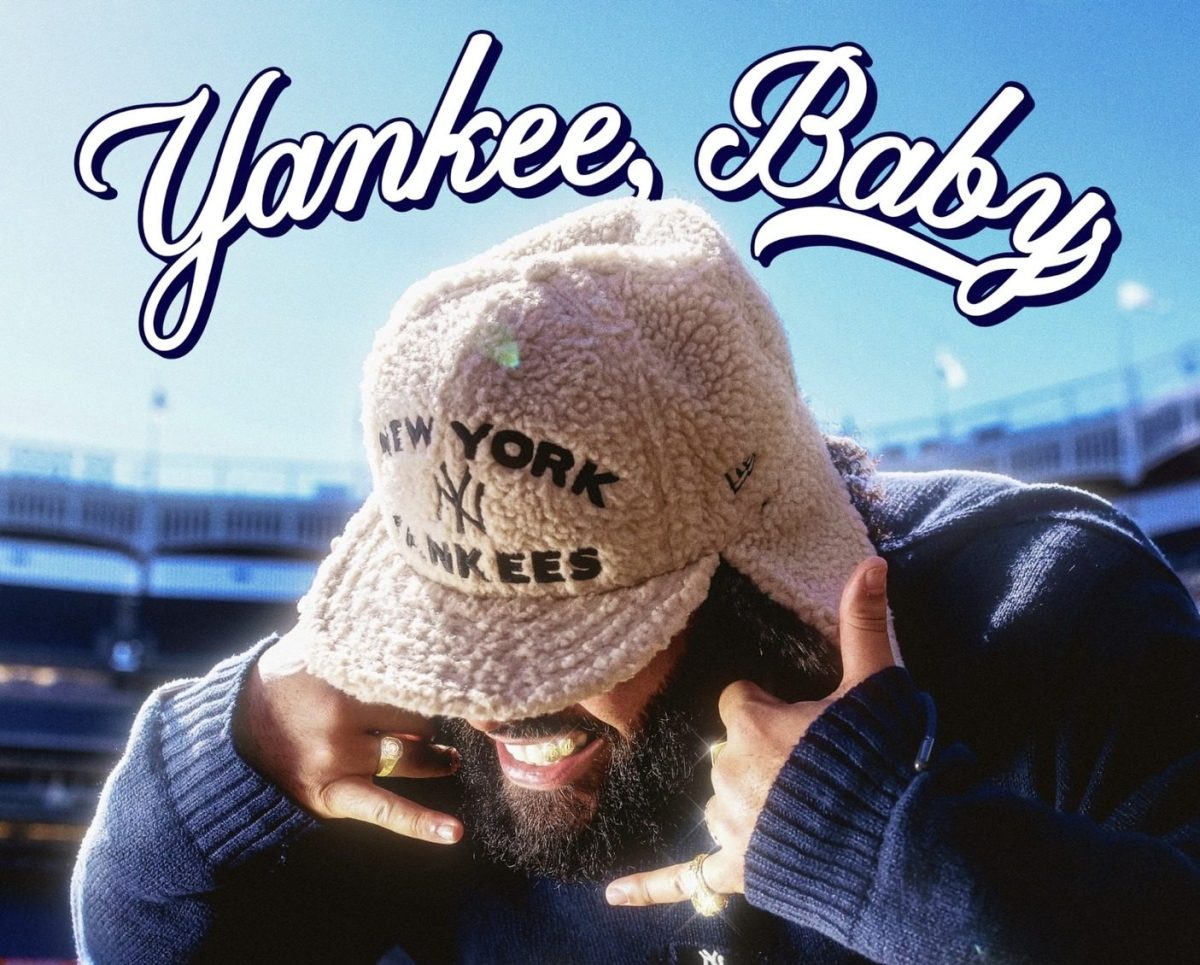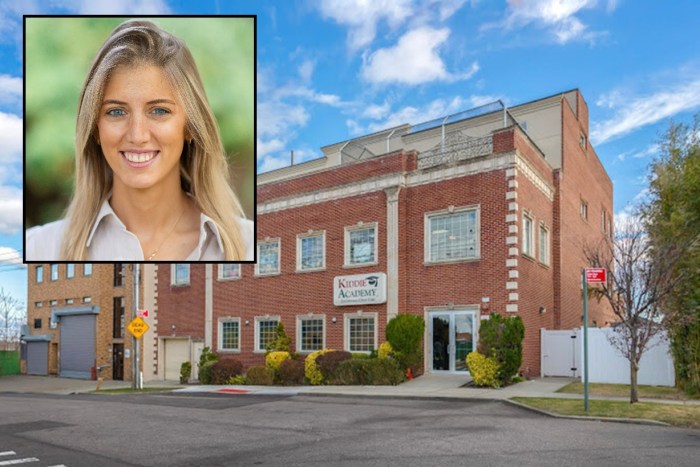By Deborah Lynn Blumberg
Above the words “Beth Abraham Chapel,” on the side door of the Greenwich Village Funeral Home on 199 Bleecker St., a new logo of a Star of David set inside a blue tree of life reminds passersby that a funeral is a celebration of a loved one’s life.
The logo is also a reminder and formal welcome to members of the Jewish community, that the almost 100-year-old funeral home is fully equipped to serve reform, conservative and Orthodox Jews. The Beth Abraham Chapel is one of a few funeral homes in Downtown Manhattan to identify itself as catering specially to Jewish needs, according to funeral director Peter DeLuca.
DeLuca and a team of rabbis introduced the name “Beth Abraham Chapel” to the funeral home’s existing location, a message saying that here, Jews dealing with the loss of a loved one are well served.
“We can arrange for every possible facet of Jewish tradition,” said DeLuca, who has owned the nonsectarian funeral home for the last 27 years and is a third-generation funeral director. With a lack of Jewish funeral homes in Lower Manhattan, he said, in the past members of the Jewish faith have had to venture to the Upper West Side for their funereal requirements. But now, they do not have to leave the Village. “We answered a need,” he said.
(According to Ben Sauerhaft, president of Congregation B’nai Jacob Ansche Brzean on Stanton St., there are still a few Jewish funeral homes around on the East Side, including Adas Israel on E. Broadway and one on Second Ave. There is also Cheset Shel Emes, the Free Jewish Burial Society, on E. Broadway, an organization that lacks a funeral parlor.)
The funeral home was established by G.B. Perazzo, an Italian immigrant, in 1926. The funeral home continued under the ownership of the Perazzo family until DeLuca bought it in 1977 and renamed it Greenwich Village Funeral Home. But he worried that the Perazzo name, which still hangs in salmon and turquoise stained glass above the building’s front doors, led some community members to believe that the home catered only to Christian customers.
When friends and neighbors asked DeLuca to clarify that the family-owned business offered Jewish services as well, he met with several area rabbis to learn more about Jewish traditions and law. Rabbi Loraine C. Heller, who lives on the Upper East Side and has worked with DeLuca for the last seven years, helped him to create the chapel’s new name and advised staff on Jewish rituals.
“Abraham is probably the one name most identified with Jewish life,” Heller said. “It’s a name that’s instantly recognizable by most Jews, and is certainly a part of a lot of our prayers.”
On a recent Wednesday morning, the smell of roses from a Jewish funeral earlier in the day permeated the home’s entryway and two small chapels. In the back chapel, black netted veils and silk yarmulkes sat on a dark wooden table, and next to them a pile of black k’ria ribbons — pins attached to a small strip of fabric that family members rip as part of the k’ria tradition. For Jewish funerals, the home also provides Yahrzeit (death anniversary) calendars, shiva candles and benches, Kaddish cards to read from at the cemetery and an Israeli flag. Services such as Taharah, a washing of the body to purify the dead before burial, are also available. A staff of both male and female rabbis also aid families.
“We try to fit the rabbi with the family,” DeLuca said, adding that he and his staff are flexible with families’ needs. “We have Jewish families that direct us in accordance with their beliefs.”
In the front chapel, the electric orange lights of a brass menorah flicker behind a light wooden casket, one of the home’s many all-wooden caskets. For Orthodox Jews, metal coffins are forbidden, and instead all-wooden models are built using wooden dowels or pegs. Light blue and cream-colored metal caskets line the walls in the home’s basement selection room, and will be joined by more wooden caskets — DeLuca says he soon plans to redesign the room to include a section for Orthodox caskets.
“We work with the same casket manufacturers and have all the same items needed for a service as the Jewish funeral homes that have been here for years,” he said.
Since he incorporated the new name, DeLuca said that the home’s Jewish clientele has more than tripled, with 20 services the first year. Prominent Jewish academics, artists and actors have come to DeLuca for funeral and memorial services, and even Jewish cremations, though the practice is atypical to the Jewish faith. “If Jewish people know that the funeral home services Jewish needs, then they feel more comfortable,” DeLuca said.
While most customers are reform or conservative Jews, Beth Abraham Chapel also caters to what DeLuca calls blended families, where family members are of varying faiths. With these families, rabbis and clergy members work together to integrate practices and rituals from both religions, DeLuca said.
Beth Abraham Chapel is another step in the Greenwich Village Funeral Home’s diverse history — Buddhist lamas have even participated in services in the past. While most funeral homes are geared to one faith, DeLuca said, his home serves every member of the community. “We’re a blank canvas,” he said. “We’re not promoting ourselves as a Jewish funeral home or a Christian funeral home — we serve everyone. You name it, we’ve had it. It’s really been an education for us.”
The Greenwich Village Funeral Home is open seven days a week, 365 days a year. The Beth Abraham Chapel has a separate phone line and Web page — bamemorial.com — for Jewish clientele.





